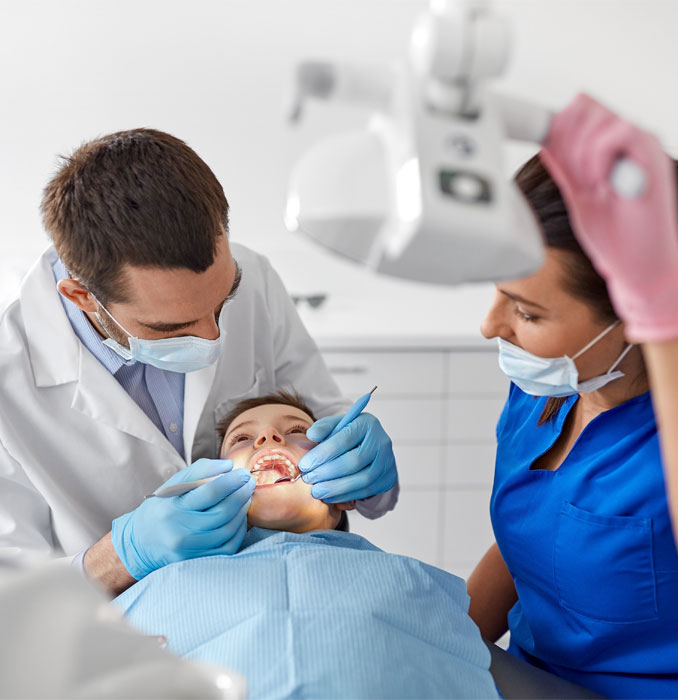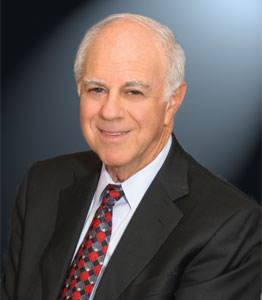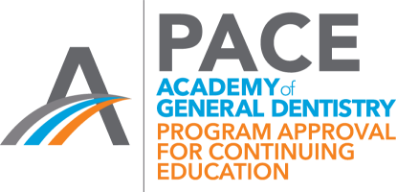


Presented by
James Kohner
D.D.S.
View Bio
Course Description
Periodontics
This live webinar will clarify diagnosis and treatment planning to help hygienists and dentists feel comfortable with stabilizing periodontal conditions and creating a predictable foundation for successful ongoing maintenance and restorative care. The topics covered will include diagnosis, prognosis, minimally invasive anti-microbial methods, osseous concepts, role of trauma from the occlusion, and predictable methods for patient motivation that will provide a key cornerstone for long-term successful maintenance care. This course is designed to enhance or develop skills in basic periodontal diagnosis and treatment planning, while at the same time showing the long term potential for a non-surgical minimally invasive approach.
An evidenced based method for minimally invasive management of moderate to advanced periodontal infection will be presented. We will discuss why targeting the bacteria and not the pocket is oftentimes the best approach. We will explore ongoing maintenance, an obvious key factor for long-term success, and introduce methods that patients can manage at home without being too complicated. With this approach compliance is typically improved versus traditional efforts of getting people to floss, which only disappoints clinicians when patients do not comply.
In addition, see how applying principles of periodontal soft tissue grafting can be diagnosed at a typical hygiene appointment. Different types of soft tissue grafting and their relationship to recession and obtaining root coverage will be discussed. You will also learn ways patients can obtain soft tissue coverage of those maxillary cuspids that are either esthetically displeasing or sensitive.
- Diagnosing, Treating, and Maintaining Periodontal Disease
- Forecasting predictability of treatment
- Rationale AGAINST plaque control
- Role of occlusion in treating and maintaining Periodontal Disease
- Furcations – Can they really be managed?
- Teeth vs. Implants
- Are we saving enough teeth?
- Role of long-term maintenance care
- Bone sets the tone in managing predictable results
- Role of “Bone Sets the Tone” vs. “Soft Tissue Management” – Which is key and why?
- Role of Hygienist in patient education
- Osseous concepts
- Bone contouring concepts and fallacies
- Managing furcations – Tunnel furcations or not?
- Soft Tissue Grafting – making soft tissues more maintainable and restorations more predictable
- Answer the question: “To Graft or Not to Graft?”
- Which soft tissue grafts are most predictable and which are not?
- Which graft is especially suited to cover exposed cuspid roots?
- Difference between Gingival Grafts and Free Gingival Grafts
- Role of grafts in obtaining predictable restorative results
- The “Gold Standard” for soft tissue augmentation
- Why we focus on FGG and CTG
- “To Graft or Not to Graft” decision tree:
- No recession present – do we graft? (Hint: Sometimes Yes, and sometimes No)
- Recession is present – do we graft now?
- How does a restoration influence these decisions?
- No recession present – do we graft? (Hint: Sometimes Yes, and sometimes No)
- Examples of FGG and CTG
- Beating Up on Periodontal Disease – A Minimally Invasive Technique
- How effective are patients with their oral hygiene care?
- Not so good?
- Why, and what can we do about it?
- A simplified approach to oral care at home
- Does it really work?
- Compliance
- Treating Pockets or Bacteria – Which one matters more?
- Indications for Antimicrobial Treatment
- Gingivitis to Advanced Periodontitis
- Active Suppuration
- Previously treated and failing Periodontitis
- Near terminal dentition from Periodontitis
- Protocol
- Role of bacterial culturing
- Role of antibiotics
- Treatment – Surgical and non-surgical approaches explained
- Case examples
- Surgical
- Minimally Invasive
- Scaling and Root Planning
- Home maintenance protocols – Treating pockets or bacteria?
- How effective are patients with their oral hygiene care?
“The educational teaching methodology used in this course is live, interactive lecture presented via Zoom webinar with an accompanying PowerPoint presentation. Both the live webinar and the PowerPoint presentation incorporate a variety of audio and visual cues to enhance audience members’ understanding and retention of key concepts. In addition, question and answer periods are provided for at the conclusion of each section of the live webinar.”
Course Objectives
At the completion of this course the participants should be able to:
- Understand what types of soft tissue grafting will stop recession and which will cover exposed root surfaces
- Understand the various periodontal disease diagnostic factors
- Articulate case for and against plaque control
- Explore different types of soft tissue grafting and their relationship to recession and obtaining root coverage
- Understand long term maintenance care – a foundational concept
- Discuss occlusion and it’s role in periodontal disease
- Discuss whether or not to treat furcations and if they can be maintained over time
- Identify the role of Diamine Fluoride in adult maintenance care
- Outline the various minimally invasive antimicrobial methods
- Explain simplified, yet effective, self-care for patients at home
- Understand how soft tissue grafting will enhance restorative results

